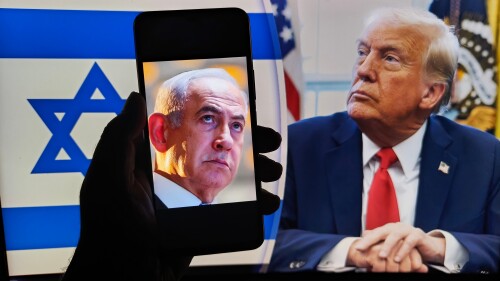Iran’s position has slipped dramatically in recent weeks.
Israel hammered its most powerful proxy, Hezbollah, into stopping its rocket attacks in November after the Lebanese terror group lost its leadership and thousands of fighters.
Days later, Sunni rebels took advantage of Israel’s successes and swept southward from Idlib, ending the Assad family’s half-century of rule in Syria and breaking the land bridge between Iran and Hezbollah.
Tehran’s vaunted missile arsenal has proven underwhelming as well. Its two massive attacks on Israel this year succeeded in killing one Palestinian man and wounding a 7-year-old Bedouin girl. In response, Israel showed it can carry out airstrikes on sensitive Iranian sites. Israeli Air Force planes also destroyed the Islamic Republic’s state-of-the-art air defense batteries, opening the path to future strikes on sensitive infrastructure.
Read the full article at the Times of Israel.








